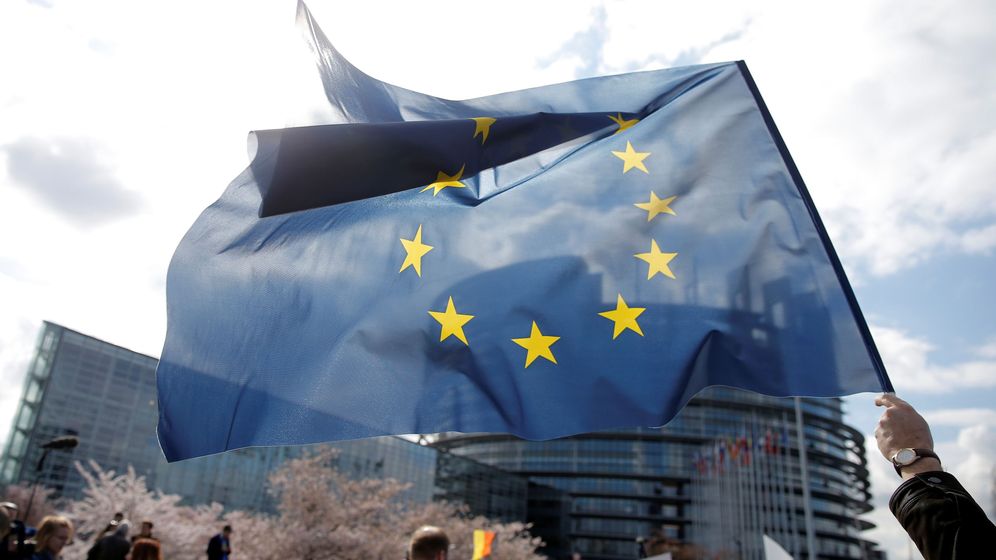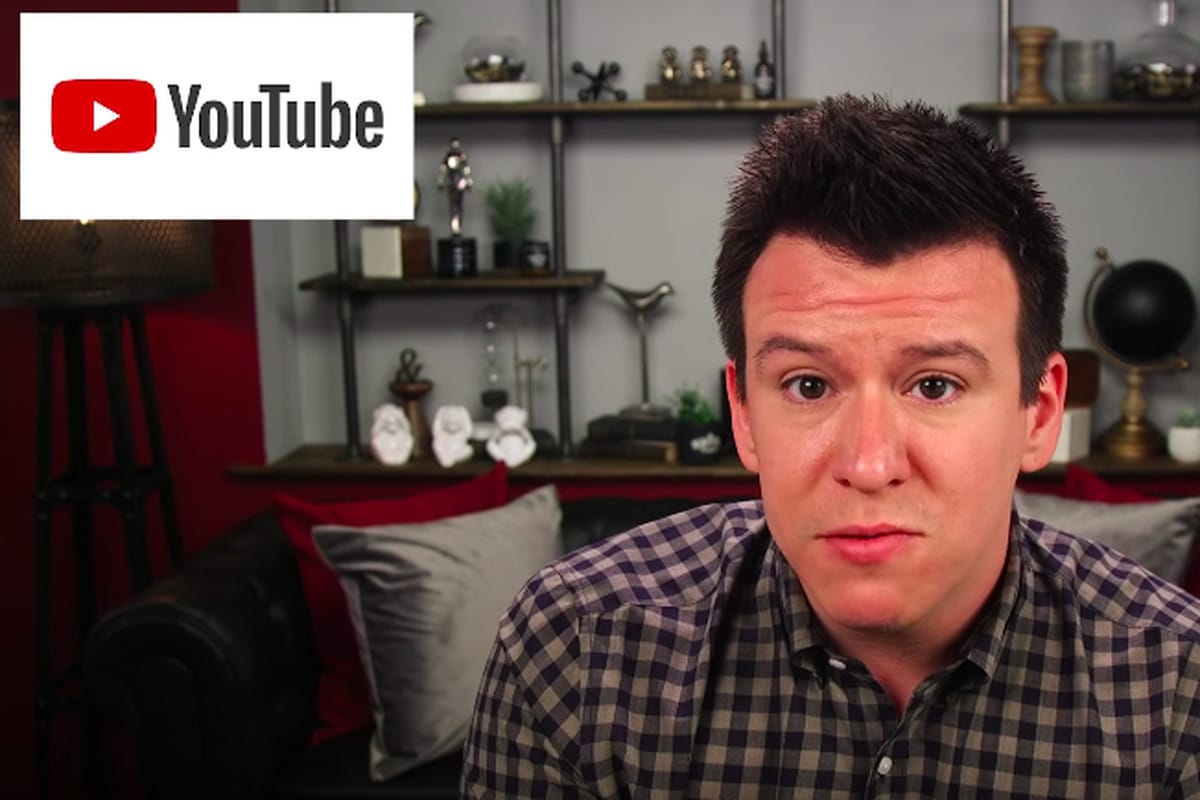YouTube creators fight European copyright vote
Los creadores de YouTube todavía están tratando de luchar contra el voto de copyright europeo.

For months, YouTube creators have been trying to warn viewers about the ramifications of Europe's new copyright directive.
And after una votación en la UE aprobó la directiva , uno de los activistas más vocales que dirigen una acusación contra la directiva, el Dr. Grandayy, dice que es hora de que los YouTubers tomen en serio el activismo de los derechos de autor.
"La reacción de YouTubers ha sido prácticamente unánime contra el Artículo 13" , dijo a The Verge Grandayy, un creador con más de 2 millones de suscriptores who is best known for his memes .
" Lo triste es que nosotros los YouTubers no tenemos grupos de presión o sindicatos que puedan luchar por nosotros y hablar con los políticos directamente por nosotros".
"La mayoría de los políticos no tienen idea de los problemas que los YouTubers enfrentan con los derechos de autor, o qué tipo de contenido produce el típico YouTuber".
La nueva Directiva de derechos de autor de la UE fue pensada como una actualización de las reglas de derechos de autor cada vez más desactualizadas de la UE, pero se han incluido a number of controversial provisions como parte de un proyecto de ley más amplio.
Una de sus enmiendas más impugnadas es el Artículo 13 (ahora conocido como Artículo 17), que responsabiliza a las plataformas por cualquier contenido cargado que viole las normas de derechos de autor.
The creators are concerned that el sistema de identificación de contenido de YouTube , que marca y elimine contenido automáticamente, se vuelva más agresivo en respuesta a los nuevos requisitos.
With Article 13, things can only get worse.
La reciente votación significa que los estados miembros de la Unión Europea tienen dos años para convertir la directiva en ley.
Es difícil decir cómo interpretarán las reglas los estados miembros, y es aún más difícil decir cómo responderá YouTube a las leyes nacionales, pero YouTubers no es optimista.
Philip DeFranco, uno de los comentaristas más populares de la plataforma, se dirigió a la votación de su episodio de The Philip DeFranco Show . DeFranco sugirió que si "YouTube es ahora la compañía que va a recibir el golpe monetario, puede estar absolutamente seguro de que se protegerán".
DeFranco agregó que "no es sorprendente" que si alguien, sea la Unión Europea o una empresa específica: si se lanzara después de YouTube, la compañía simplemente comenzaría a "bloquear el contenido".
"Si creó una situación en la que mis videos podrían ser eliminados debido a alguna ley en la UE, solo bloquearé mi contenido de la UE", dijo DeFranco. "No me gustaría, pero esa sería mi nueva realidad".
Los ejecutivos de YouTube parecen compartir esas preocupaciones. La CEO Susan Wojcicki tuiteó que la enmienda para eliminar el Artículo 13 solo falló por unos pocos votos (cinco, para ser específicos) "y podría haber sido diferente".
Un portavoz de YouTube agregó en un correo electrónico a The important thing is que "los detalles son importantes, y esperamos trabajar con los responsables políticos, editores, creadores y titulares de derechos a medida que los estados miembros de la UE se mueven para implementar estas nuevas reglas".
Parte de la cuestión, según Grandayy, es que "la mayoría de los políticos que trabajan en la directiva ni siquiera sabían qué eran los 'memes' antes de que empiecen a llegar todas las críticas".
Grandayy se ha reunido con dos miembros del Parlamento para abordar las inquietudes dentro de la comunidad, y él tiene la esperanza de que los legisladores estén comenzando a darse cuenta de las implicaciones de las nuevas reglas.

Es una postura similar a la de los propios ejecutivos de YouTube que tuitearon su esperanza de trabajar con los miembros del Parlamento para abordar las mayores preocupaciones de la compañía.
THE INTERNET WILL NO LONGER BE THE SAME.
Es uno de los pocos problemas en los que los creadores y ejecutivos de YouTube están luchando juntos, y esa cohesión no se pierde en creadores como Grandayy.
Reconoce que la respuesta de YouTube ha sido "bastante buena hasta ahora", y agregó que los ejecutivos de la compañía no son "demasiado negativos, sino que están brindando críticas constructivas al sugerir mejoras en el texto en lugar de solo decir que es malo y que debería ser descartado". en conjunto ".
Grandayy sugirió que, en todo caso, las personas dentro de la comunidad de YouTube sienten que el equipo ejecutivo de YouTube no ha tomado una posición lo suficientemente dura, pero eso es algo bueno.
"Las compañías que hacen cabildeo a favor del artículo 13 ya están difundiendo mentiras de que todas las críticas son solo de astroturf por Google", dijo Grandayy.
"Creo que cuanto menos negativo sea YouTube, más claro es que todas las críticas son genuinas y provienen de la gente misma".


Write us a comment: